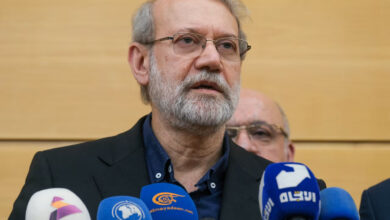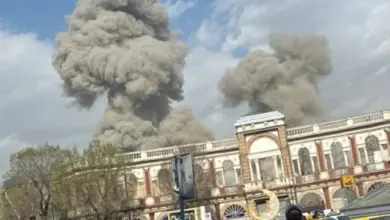Washington–Secretary of State Hillary Clinton said on Wednesday she hoped Israeli-Palestinian peace talks would resume "shortly," sounding more upbeat than usual for a US official.
Separately, Israel’s ambassador to the United States told Reuters if negotiations resumed after being frozen for more than a year they would start as indirect "proximity talks," with US envoy George Mitchell shuttling between the sides.
Ambassador Michael Oren also said Israelis would only make territorial concessions to Syria if they believed it would be as part of a "warm and genuine peace" with a free flow of goods and people.
Peace talks with the Palestinians and Turkish-mediated discussions with Syria stalled after Israel launched a major offensive in the Hamas-ruled Gaza Strip in December 2008 that left 1,400 Palestinians dead.
Despite calling the Arab-Israeli conflict a priority from the start of his administration, US President Barack Obama’s efforts have failed to revive negotiations.
After initially demanding a freeze on Israeli construction in Jewish settlements on the West Bank and in Jerusalem, the Obama administration last year abandoned that stance, a step seen as undercutting Palestinian President Mahmoud Abbas.
US officials hope Abbas can be persuaded to give up his desire for an absolute halt to settlement construction before resuming talks, particularly if he gets backing from Arab states.
They hope this might be forthcoming at an Arab League summit in Tripoli in March, setting the stage for fresh negotiations.
"We hope that that will commence shortly," Clinton told lawmakers. "We think it’s absolutely essential that they begin to talk about the final status issues that divide them … but we are well aware of the difficulties that confront us."
Even if Israel and the Palestinians agree to resume talks, many analysts believe chances of a peace agreement soon are slim because of divisions among the Palestinians and the fragile, right-wing coalition in Israel.
A senior US official who spoke on condition that he not be identified said Clinton had some grounds for optimism about a resumption of talks.
"We’re not there yet, but there’s a way from here to there," said the US official.
Oren sketched out a negotiating technique that he said would take the two sides back to the 1940s when Israeli and Arab officials would not sit in the same room.
"At least in the initial stage, the talks will be proximity talks with … Senator Mitchell as the intermediary between the Israeli government and the Palestinian authority," he told Reuters.
The central issues in the six-decade conflict are the delineation of borders, the fate of Jewish settlements on the West Bank, the status of Jerusalem, which both sides claim, and the rights of Palestinian refugees.
About half a million Israelis live in settlements built in the West Bank and East Jerusalem in territory captured by Israeli forces in the 1967 Middle East War.
Palestinians want to establish a state in the West Bank and Gaza Strip, with its capital in Jerusalem.
Oren suggested Israel was open to reviving peace talks with Syria but stressed it wanted these to be direct, face-to-face encounters rather than through mediation.
He also suggested Israelis would only agree to giving back lands seized from Syria in 1967 if they believed Damascus wanted truly normal relations, ended support for Palestinian militant groups and distanced itself from Iran.
"Israelis would not be willing to make, I think, serious territorial concessions (to Syria) unless they were convinced that this was a warm and genuine peace," Oren said.
Israel’s peace treaty with Egypt, brokered by former US President Jimmy Carter at the Camp David presidential retreat in 1978, has disappointed many Israelis who feel that Egyptians have never accepted the Jewish state as a full partner.




